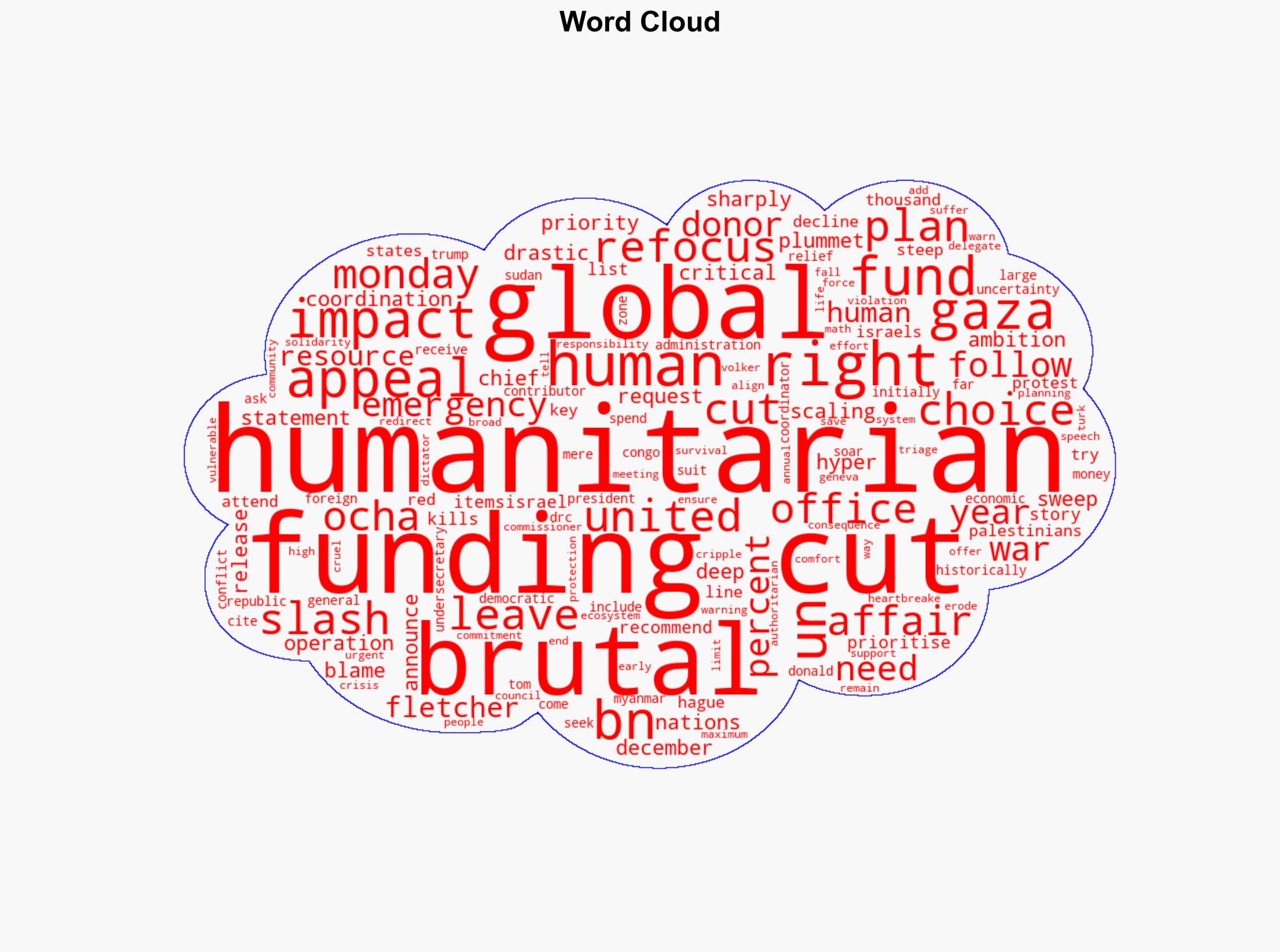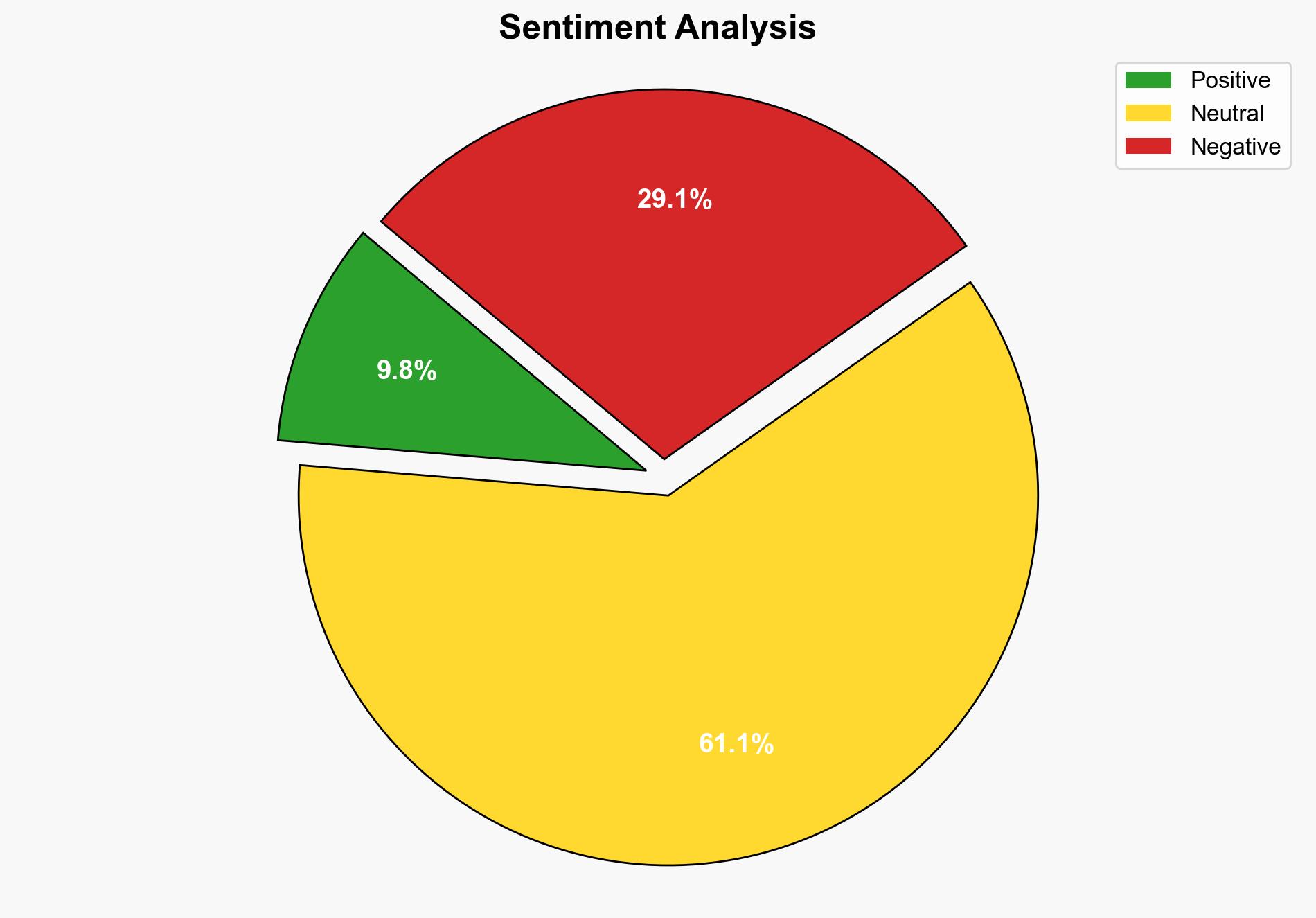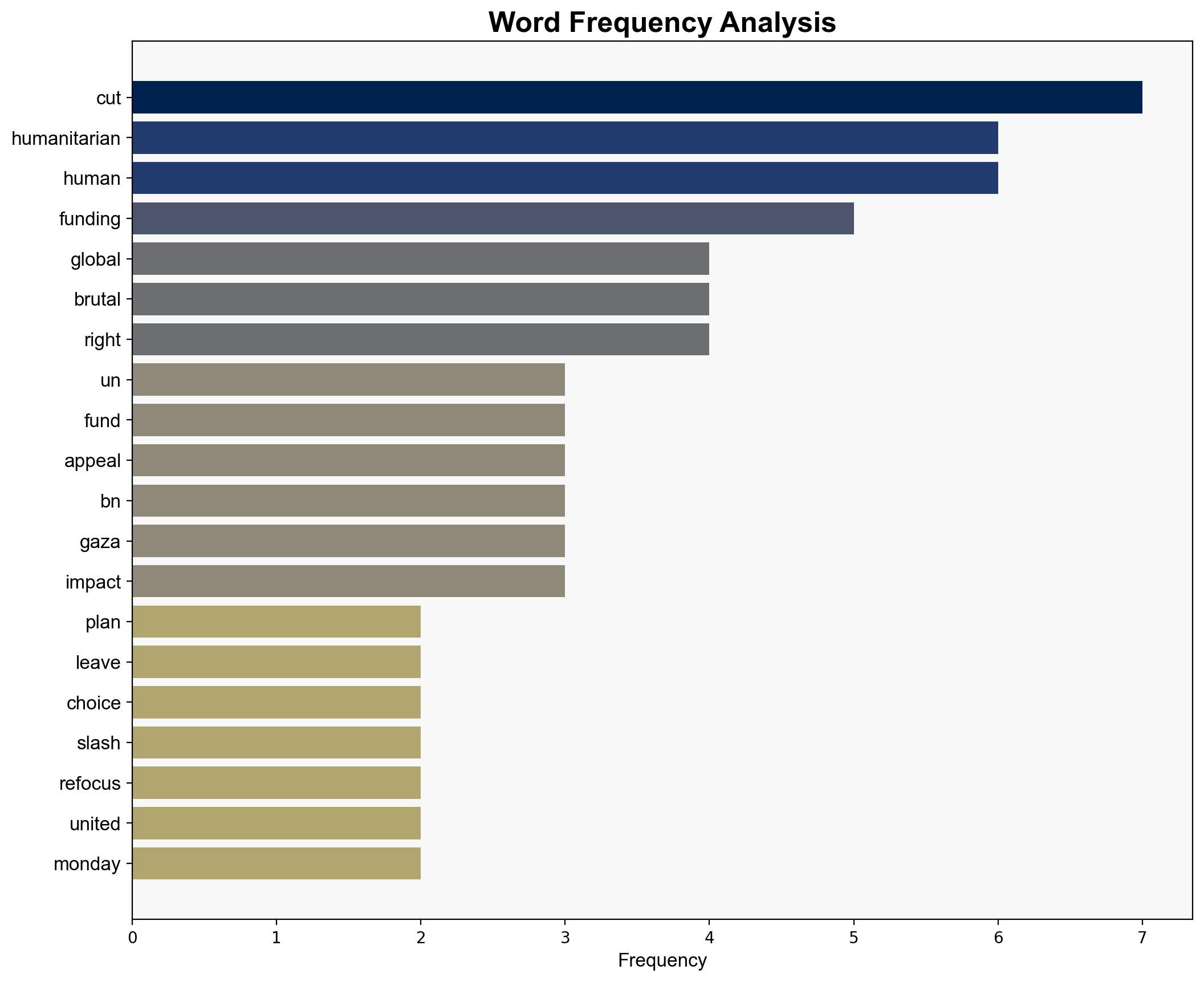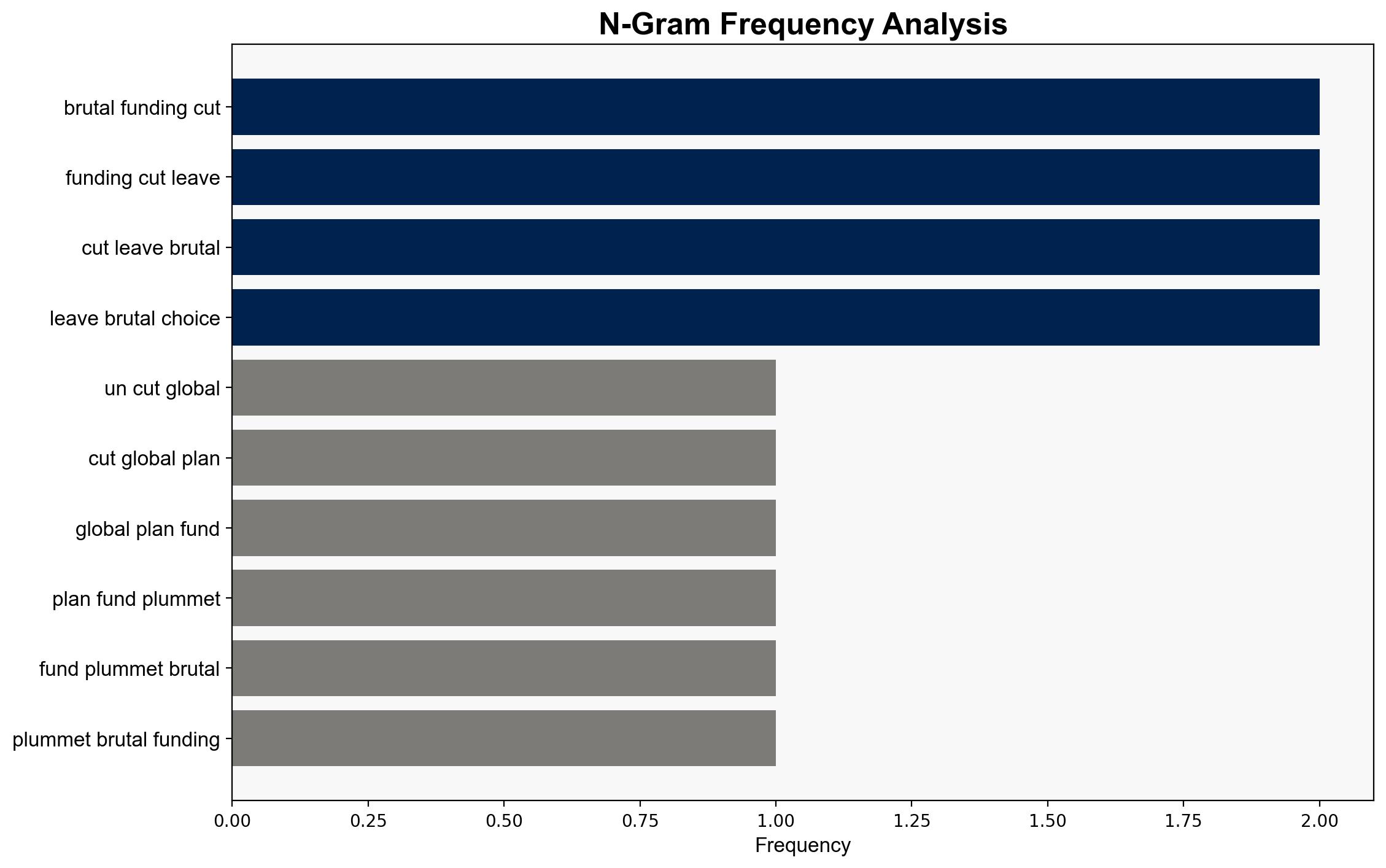UN cuts global aid plan as funding plummets – Al Jazeera English
Published on: 2025-06-16
Intelligence Report: UN cuts global aid plan as funding plummets – Al Jazeera English
1. BLUF (Bottom Line Up Front)
The United Nations has announced significant reductions in its global humanitarian operations due to a steep decline in funding. This reduction will severely impact critical emergency responses in conflict zones such as Sudan, Gaza, and the Democratic Republic of Congo. The funding shortfall, attributed to decreased contributions from major donors like the United States, poses a substantial risk to global humanitarian efforts and could exacerbate existing crises.
2. Detailed Analysis
The following structured analytic techniques have been applied to ensure methodological consistency:
Causal Layered Analysis (CLA)
Surface events: The UN’s decision to cut its aid plan is a direct response to a significant funding shortfall.
Systemic structures: The reduction in aid is linked to global economic uncertainties and policy shifts in donor countries.
Worldviews: There is a growing perception of donor fatigue and shifting priorities towards domestic issues.
Myths: The belief that international aid is a shared global responsibility is being challenged by nationalistic policies.
Cross-Impact Simulation
The reduction in UN aid is likely to increase instability in affected regions, potentially leading to increased migration pressures and regional conflicts. Neighboring countries may experience heightened economic and social strain as they absorb displaced populations.
Scenario Generation
Best Case: Alternative funding sources are identified, and aid operations are partially restored, mitigating the worst impacts.
Worst Case: Continued funding shortages lead to a humanitarian crisis, with increased mortality and regional instability.
Most Likely: Partial restoration of funding allows for limited aid operations, but significant gaps remain.
3. Implications and Strategic Risks
The funding cuts could lead to a deterioration of humanitarian conditions, increasing the risk of conflict and instability in vulnerable regions. This may result in a rise in human rights violations and a weakening of early warning systems, further eroding regional security.
4. Recommendations and Outlook
- Encourage international coalitions to explore alternative funding mechanisms to support critical humanitarian needs.
- Strengthen diplomatic efforts to engage non-traditional donors and private sector partners.
- Scenario-based projections suggest that immediate action is required to prevent a worst-case humanitarian crisis.
5. Key Individuals and Entities
Tom Fletcher, Volker Turk
6. Thematic Tags
global humanitarian aid, funding crisis, international relations, regional stability





